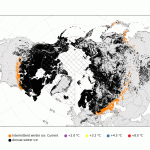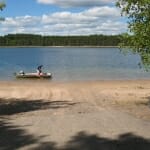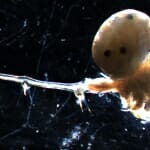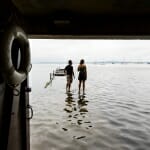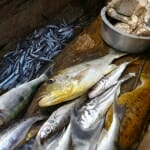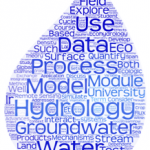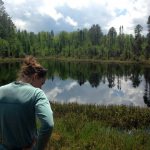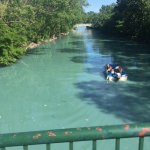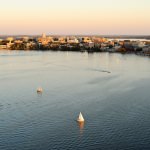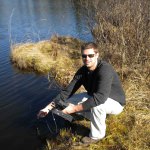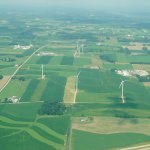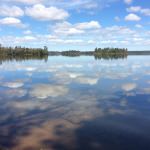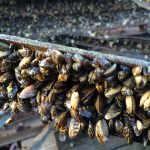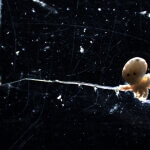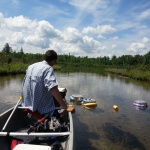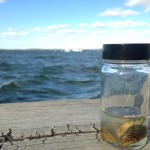Tag Limnology
Reddit competes to visualize Madison’s prized Lake Mendota ice data
Data visualizations generated by a Reddit competition reveal a concerning trend that’s been known to scientists at UW–Madison and elsewhere for decades: ice is disappearing on Lake Mendota.
As the climate warms, tens of thousands of lakes may spend winters ice free
A new study from an international team of researchers, including at UW–Madison, shows that many northern latitude lakes are at risk of experiencing some ice-free winters in the coming decades.
Mercury levels in fish fluctuate along with water levels in lakes
A new study has found that when droughts cause water levels to drop, the levels of mercury found in fish also plummet. In wetter weather, water levels rise and levels of mercury in fish increase.
Forget ‘needle in a haystack.’ Try finding an invasive species in a lake.
A new study may explain why the tiny and invasive spiny water flea passed undetected in Lake Mendota, one of the most-studied lakes in the world, for a decade.
Campus situated between two lakes means beauty, but also high waters sometimes
Rising waters from Lake Mendota area are affecting some parts of the UW–Madison campus, including the Hasler limnology building and Picnic Point.
Study finds “hidden harvest” in world’s inland fisheries
A new study published today in the Proceedings of the National Academy of Sciences says we are dramatically underestimating the role inland fisheries play in global food security.
Testing the waters for a new kind of graduate teaching
A UW–Madison engineering professor has designed a three-credit graduate course in a virtual university format, with live online lectures delivered to remote audiences.
All hands on deck to understand, predict, prevent abrupt ecological change
“It’s a generally thorny problem and we are often scrambling to react,” says lead principal investigator Monica Turner. “In fact, understanding abrupt change in ecological systems is among the biggest challenges in contemporary ecology.”
New Faculty Focus: Hilary Dugan
New Integrative Biology Professor Hilary Dugan once worked as a research assistant in the Canadian Arctic and fell in love with fieldwork and studying global change. At some point, her interests narrowed to water, and eventually lakes.
First, but not last, algae bloom spells danger for Madison swimmers, fish
Steve Carpenter couldn’t believe the view from his second-floor office on the shoreline of Lake Mendota. As far as he could see, the still water looked just like teal-blue paint.
Road salt is making North America’s freshwater lakes, well, saltier
Road salt is making North America’s freshwater lakes saltier, according to a new study published in the Proceedings of the National Academy of Sciences.
When it comes to biological populations, expect the unexpected
More than three decades of data on the physical, chemical and biological variables in 11 Midwestern lakes show that while lake temperatures and nutrient concentrations rise within relatively expected ranges, biological organisms achieve high population extremes.
Study shows many lakes getting murkier, but gives hope for improvement
While water clarity in most Wisconsin lakes has not changed in 20 years, researchers say the fact that more lakes are getting worse signals there is work to be done.
Zebra mussels invade Lake Mendota
In the last four months, UW–Madison researchers have started to find zebra mussels congregating in large numbers all over Lake Mendota.
Rare ice data collected by early ‘citizen scientists’ confirms warming since Industrial Revolution
Data reveals increasing trends toward later ice cover formation and earlier spring breakup.
UW scientists say invasive species impacts much worse than thought
According to UW researchers, a single non-native species in a single inland lake has racked up $80 million to $163 million in damage.
Greenhouse gas emissions from freshwater higher than thought
Do not underestimate the babbling brook. When it comes to greenhouse gases, these bucolic water bodies have the potential to create a lot of hot air.
UW-Madison students find zebra mussels in Lake Mendota
An undergraduate class at the University of Wisconsin–Madison has discovered another invasive species in Lake Mendota.


